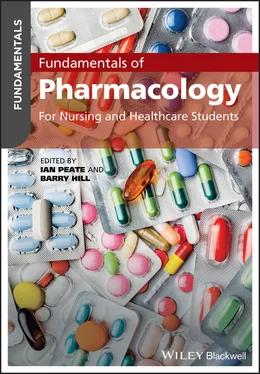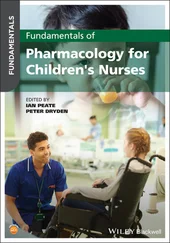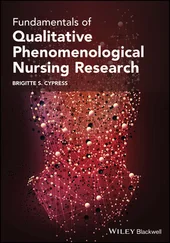Step 5. Carry out the actions/option chosen and reflect on the outcome.Plan how your decision can be implemented with the upmost care, pay attention to any concerns raised by all of the stakeholders. Implement your plan and evaluate. Reflect on the results of your choice of decision and what have you learned from this specific scenario. Consider how the ethical problem could be prevented in the future.
Paul is a 65‐year‐old man who has attended the walk‐in centre with a suspected oral infection. He is allergic to penicillin so is prescribed metronidazole 200 mg twice daily for seven days. However, he smells strongly of alcohol and it states in his previous notes that he has had multiple admissions with alcohol‐related injuries and has a chronic alcohol addiction. You as the nurse query this with the doctor who has prescribed the antibiotics, knowing that the British National Formulary (Joint Formulary Committee, 2019) indicates that alcohol and metronidazole are contraindicated and can cause a severe reaction. The doctor states that she has discussed this with Paul and he is aware that he must refrain from drinking alcohol for the course of the treatment. Consider this from an ethical perspective. While the treatment may be doing ‘good’ (beneficence), it has the potential to do harm (maleficence). It is imperative that health professionals discuss medication plans prior to treatment to ensure that patients are aware of the impact this will have on their daily activities. In Paul's case, it is highly unlikely that he will refrain from alcohol and could either take the metronidazole regardless, risking an adverse reaction, or he may decide to not take the antibiotics and risk further infection and possible sepsis. Key message? Ensure every decision made fully involves the patient and aligns with their own values and lifestyle.
Maya is an 85‐year‐old woman who lives alone. She is usually independent with all of her activities of living and, although she does not like to leave the house, she is usually in good physical and mental health. Her daughter visits her three times a week and has noticed some increased confusion over the past few days. Today she has visited and felt it necessary to call the GP as Maya is extremely confused and smells strongly of malodorous urine. The GP refers her to the acute admissions unit with a suspected Urinary Tract Infection (UTI). Further tests are undertaken in hospital, but the admissions team decide to prescribe intravenous (IV), broad‐spectrum antibiotics to treat the UTI as per the guidance from the National Institute for Health and Care Excellence (NICE NG109, 2018), which they hope will also alleviate the acute confusional state. However, Maya becomes very distressed when the nurse attempts to cannulate and Maya's daughter states that she does not consent to her mother receiving IV antibiotics. Maya has been assessed as an adult lacking capacity by health professionals. In accordance with the Mental Capacity Act (2005), she is cannulated and receives the IV antibiotics. Over the course of the next 24 hours her condition improves and her acute confusional state dissipates. The health professionals have acted in accordance with legal standards. They have also balanced their duty to respect Maya's autonomy with their duty of care in ensuring beneficence (doing good by giving the required treatment in Maya's best interests) and non‐maleficence (doing no harm by omitting care that was in her best interests).
This chapter has sought to outline the fundamental legal and ethical principles relating to pharmacology in healthcare. The three key components that underpin high‐quality decision‐making with and for patients in our care are related to the law, ethical principles and regulatory bodies. A variety of legislation has been discussed to offer an understanding and insight into how healthcare professionals manage and administer medicines within the confines of the law. The interplay of legislation, ethical principles and professional regulation is a fine balance that health professionals seek to strike in order to optimise the safety and efficacy of treatment.
Working in healthcare requires an acknowledgement of the areas of ambiguity and conflict that may be encountered; and while we seek to always ‘do good’, there are countless situations where this endeavour may be obstructed by other considerations such as patients' capacity or the wider public interest.
Acknowledgement of the issues that have been outlined within this chapter and a deeper understanding of how to apply the knowledge of ethical principles will ultimately improve practice and provide safer and higher quality patient care. It is incumbent upon all health professionals (and students) to act with integrity within these frameworks and to make individualised decisions which are in the patients' best interest and, wherever possible, fully informed.
1 Abortion Act (1967). Abortion Act. www.legislation.gov.uk/ukpga/1967/87/contents(accessed 19 September 2019).
2 Baillie, L. and Black, S. (2015). Professional Values in Nursing. Florida, USA: Taylor & Francis Group.
3 Beauchamp & Childress (2009). Principles of Biomedical Ethics, 6e. Oxford: Oxford University Press.
4 Bolam v Friern Hospital Management Committee (1957). 1 WLR 583.
5 Corrigan, O. (2003). Empty ethics: the problem with informed consent. Sociology of Health and Illness 25 (3): 768–792.
6 Data Protection Act (2018). Data Protection Act. www.legislation.gov.uk/ukpga/2018/12/contents/enacted(accessed 19 September 2019).
7 Deber, R., Kraetschmer, N., Urowitz, S. et al. (2007). Do people want to be autonomous patients? Preferred roles in treatment decision‐making in several patient populations. Health Expectations 10: 248–258.
8 Declaration of Helsinki (2008). Ethical principles for medical research involving human subjects. https://www.who.int/bulletin/archives/79%284%29373.pdf(accessed 19 September 2019).
9 Department of Health (2012). Compassion in practice. https://www.england.nhs.uk/wp‐content/uploads/2012/12/compassion‐in‐practice.pdf(accessed 19 September 2019).
10 Edwards, A. and Elwyn, G. (eds.) (2009). Shared Decision‐Making in Health Care. Achieving Evidence‐Based Patient Choice. Oxford: Oxford University Press.
11 Expert Scientific Groups on Phase One Clinical Trials (2006). Final Report. https://webarchive.nationalarchives.gov.uk/20130105143109/www.dh.gov.uk/prod_consum_dh/groups/dh_digitalassets/@dh/@en/documents/digitalasset/dh_073165.pdf(accessed 19 September 2019).
12 Family Law Reform Act (1969). Family Law Reform Act. www.legislation.gov.uk/ukpga/1969/46(accessed 12 September 2019).
13 Fitzgerald, C. and Hurst, S. (2018). Implicit bias in healthcare professionals: a systematic review. BMC Medical Ethics 18 (19): 1–18.
14 Francis, R. (2013). Report of the Mid Staffordshire NHS Foundation Trust Public Enquiry. London: Stationary Office.
15 General Medical Council (2013). Good practice in prescribing and managing medicines and devices. https://www.gmc‐uk.org/‐/media/documents/prescribing‐guidance:pdf‐59055247.pdf?la=en(accessed 19 September 2019).
16 Gillick v West Norfolk and Wisbech area Health Authority and Department of Health and Social Security (1985). Landmark decision for children's rights. Childright 22: 11–18.
17 Glass v United Kingdom (2004). App. No 61827/00, 39 Eur. H.R.Rep. 15.
18 Goyal, M.K., Kuppermann, M., Cleary, S. et al. (2015). Racial disparities in pain management of children with appendicitis in emergency departments. JAMA Pediatrics 169 (11): 996–1002.
19 Hall, A. (2017). Using legal ethics to improve implicit bias in prosecutorial discretion. Journal of the Legal Profession 42 (1): 111–126.
Читать дальше












